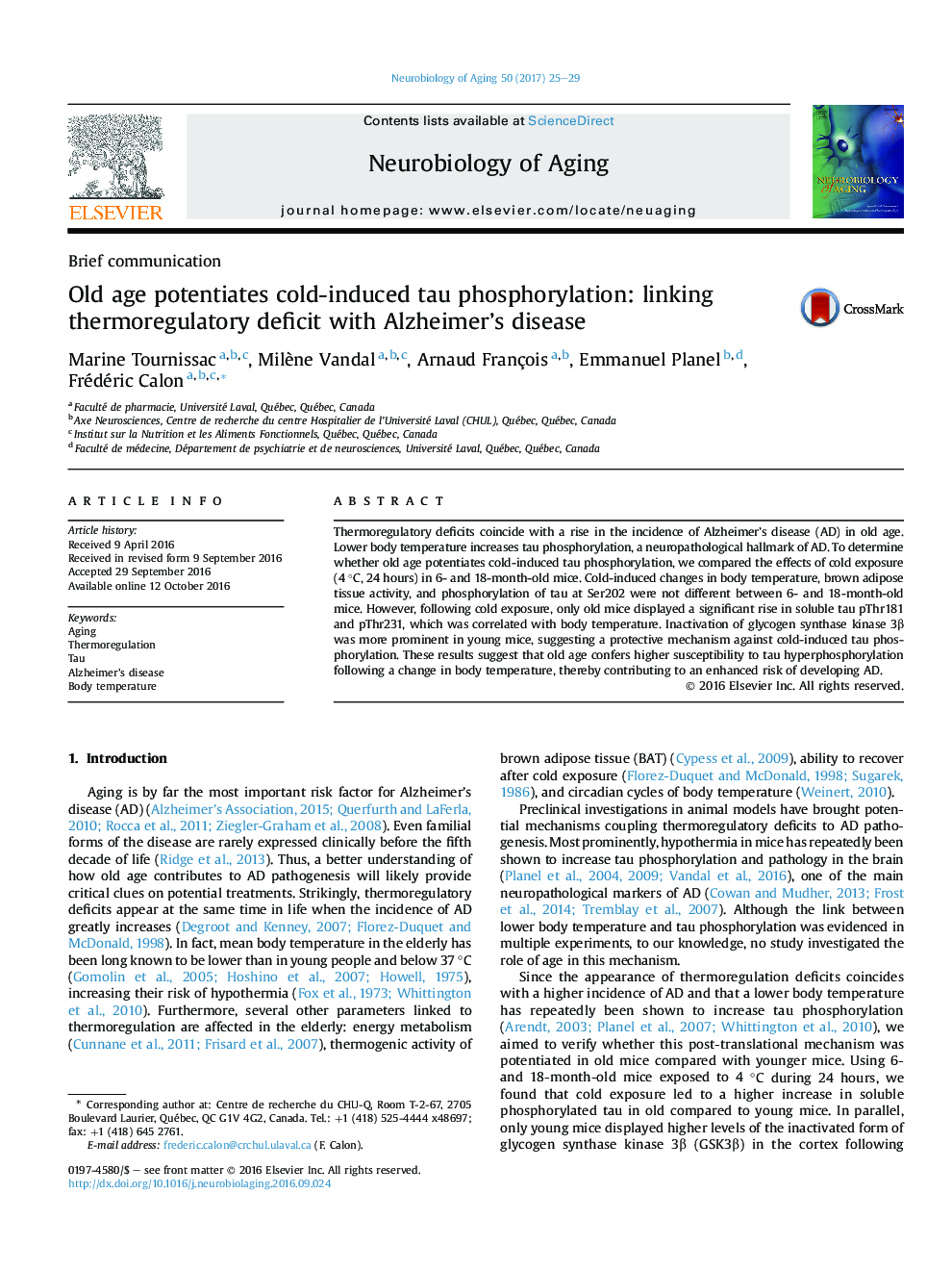| Article ID | Journal | Published Year | Pages | File Type |
|---|---|---|---|---|
| 4932844 | Neurobiology of Aging | 2017 | 5 Pages |
Abstract
Thermoregulatory deficits coincide with a rise in the incidence of Alzheimer's disease (AD) in old age. Lower body temperature increases tau phosphorylation, a neuropathological hallmark of AD. To determine whether old age potentiates cold-induced tau phosphorylation, we compared the effects of cold exposure (4 °C, 24 hours) in 6- and 18-month-old mice. Cold-induced changes in body temperature, brown adipose tissue activity, and phosphorylation of tau at Ser202 were not different between 6- and 18-month-old mice. However, following cold exposure, only old mice displayed a significant rise in soluble tau pThr181 and pThr231, which was correlated with body temperature. Inactivation of glycogen synthase kinase 3β was more prominent in young mice, suggesting a protective mechanism against cold-induced tau phosphorylation. These results suggest that old age confers higher susceptibility to tau hyperphosphorylation following a change in body temperature, thereby contributing to an enhanced risk of developing AD.
Related Topics
Life Sciences
Biochemistry, Genetics and Molecular Biology
Ageing
Authors
Marine Tournissac, Milène Vandal, Arnaud François, Emmanuel Planel, Frédéric Calon,
